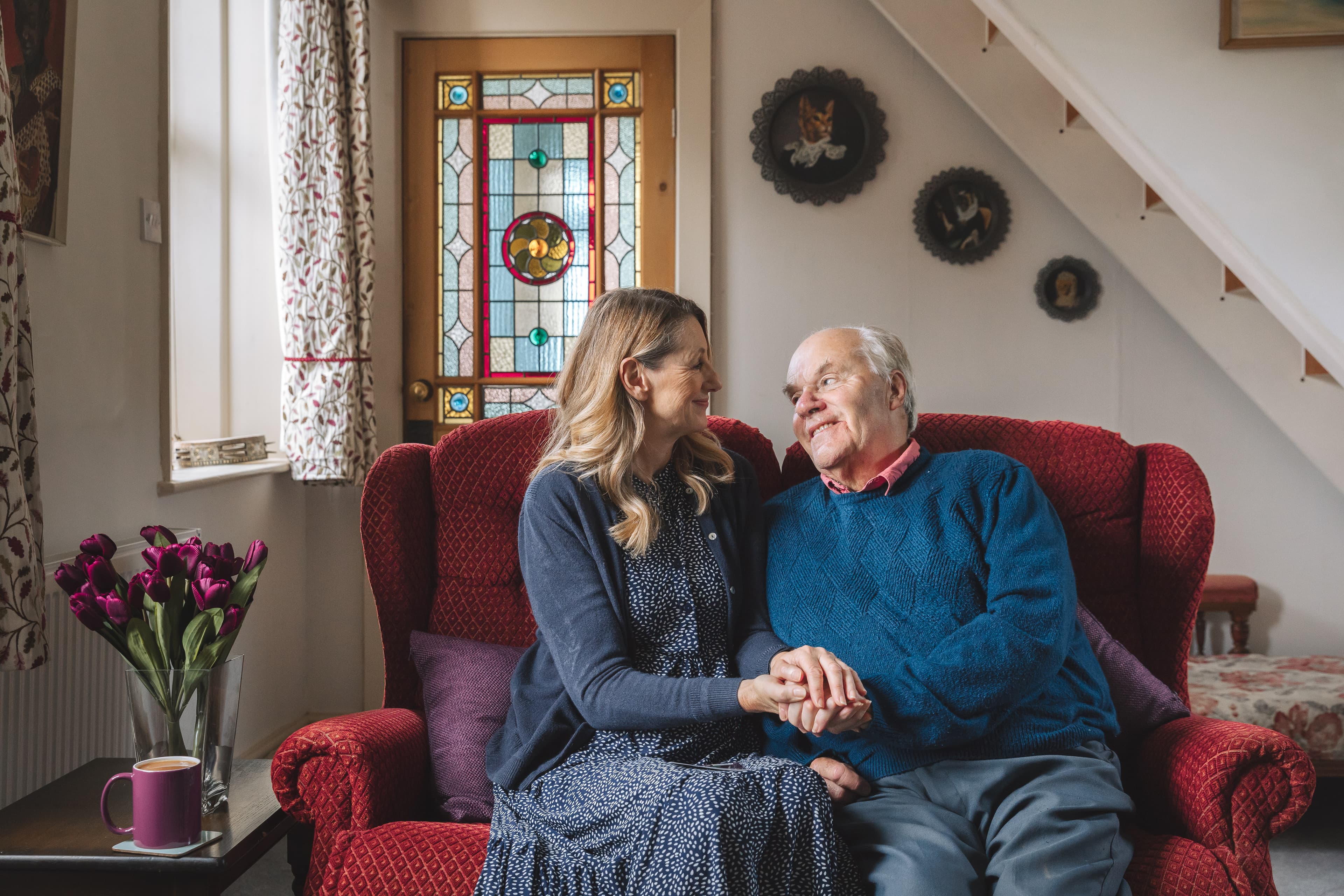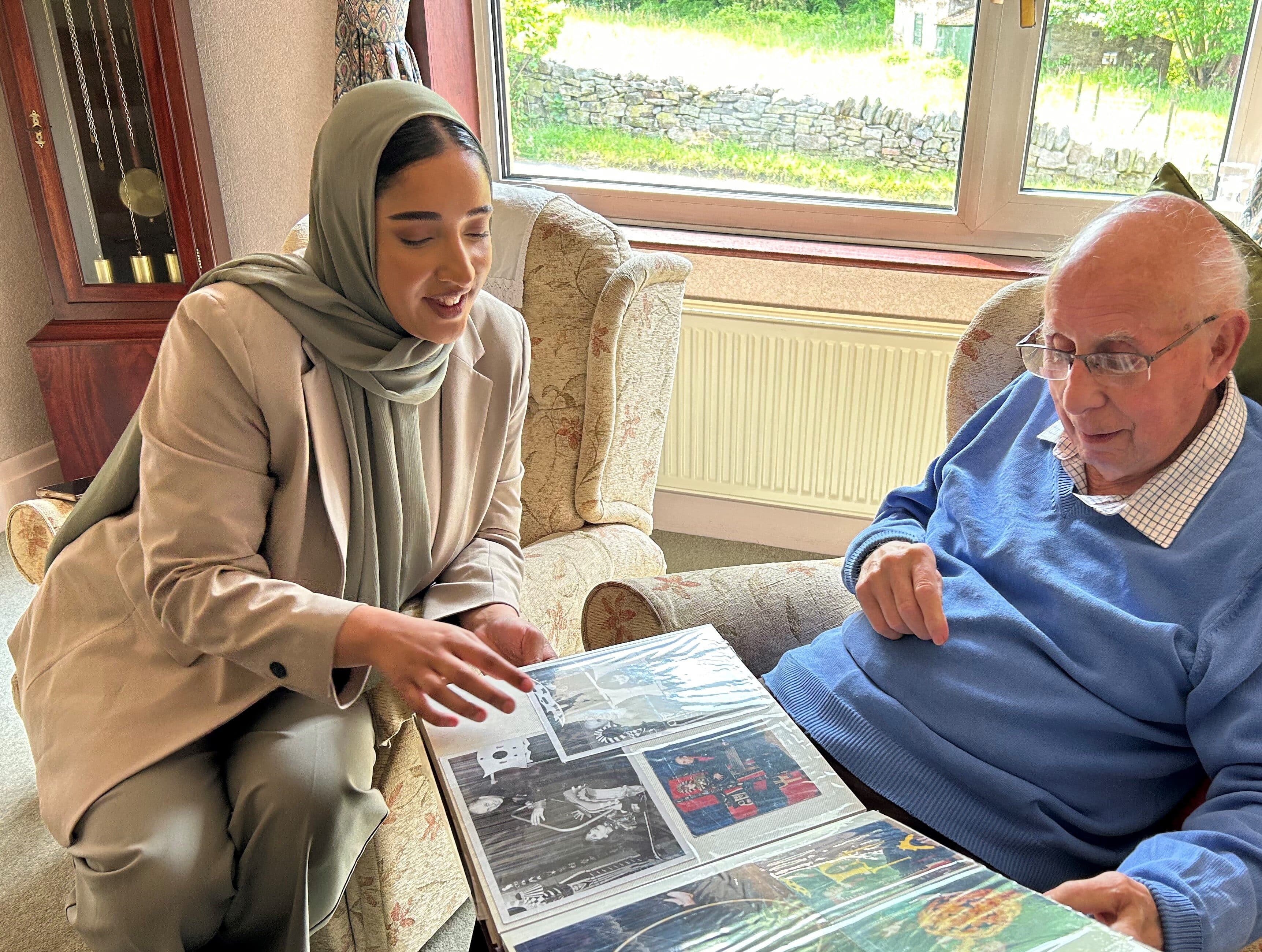
Types of palliative care at home
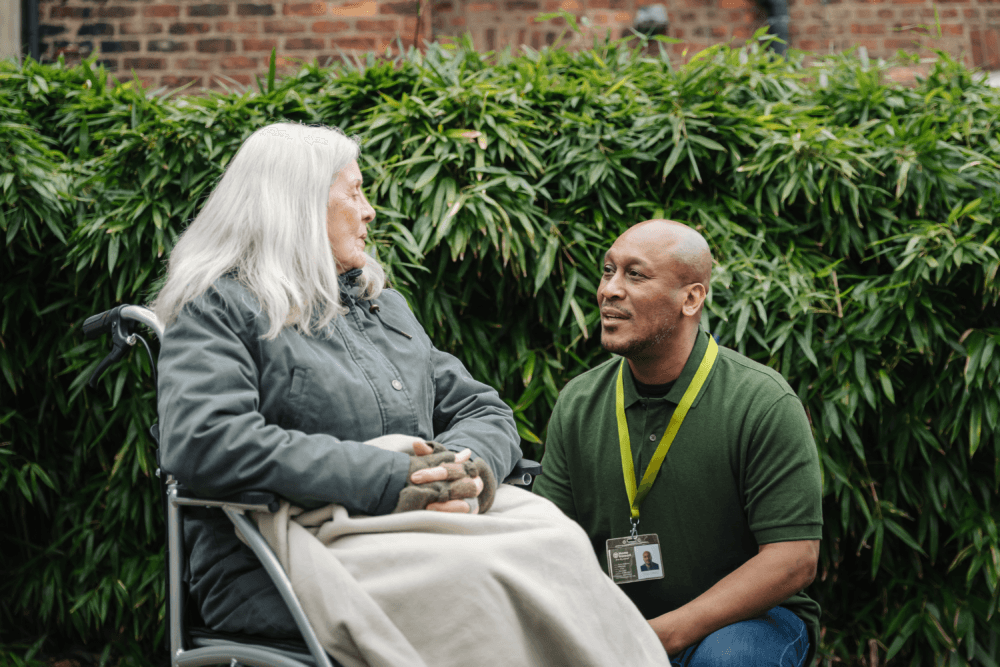
Types of palliative care at home
We can offer a range of types of palliative care at home, delivered by compassionate and highly trained Care Professionals who are experienced in helping families navigate the challenges of pain management and end-of-life care.
What is palliative care at home?
Palliative care involves pain and symptom management for those with a serious condition or a terminal illness. It is provided by specialist doctors and nurses, and can take place in a hospice, hospital, care home, or in the person’s own home. While there are benefits to receiving palliative care in a clinical setting, research finds 71% of those receiving end-of-life care prefer this to happen at home to avoid disrupting their life and minimise stress.
Palliative care at home might involve:
- Pain and symptom relief to maintain comfort
- Medication management
- Coordinating visits from doctors
- Psychological care and emotional support
- Arranging spiritual support if desired
Helping families navigate the challenges of end-of-life care, if applicable
Why is palliative care at home important for older adults?
There are many benefits to palliative care, most notably the improvement in quality of life for those with a serious illness. For example, a 2020 study on people with Parkinson’s disease found those who received palliative care scored 3 points higher on a quality of life score than those receiving traditional treatment. Palliative care at home is focused on pain and symptom management, but it also helps reduce risk of depression in some conditions, and provides support to families navigating the complexities of end-of-life care.
Care at home means patients get one-on-one support, and can enjoy family time and home comforts in the place they love most. You may find more helpful benefits in our guide to the benefits of home care vs a care home.
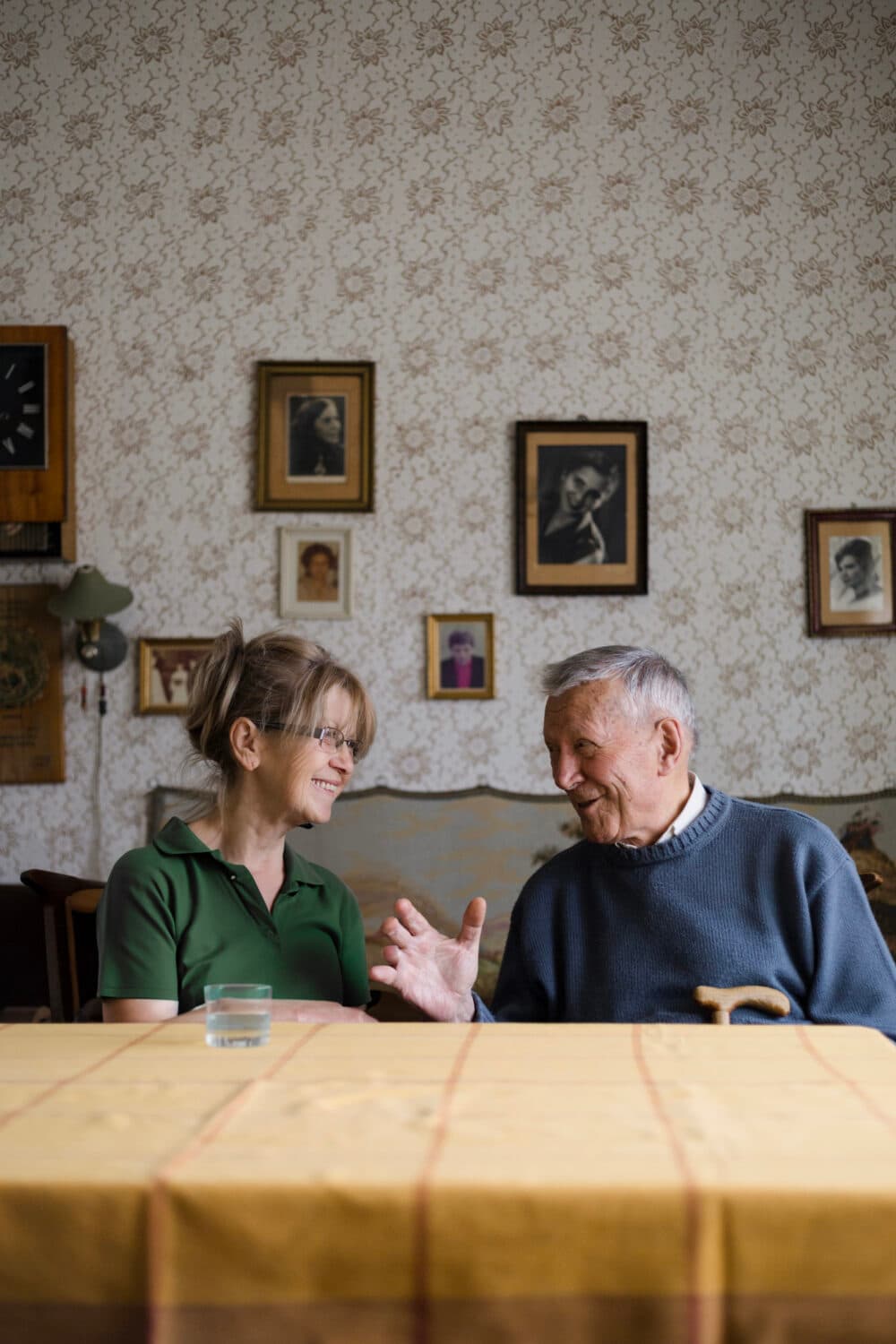
Does my loved one need palliative care?
Your doctor will advise on whether or not you or your loved one needs palliative care, and when this should begin. Palliative care may be offered to those with a serious illness–terminal or not–to help manage distressing symptoms like pain, shortness of breath, fatigue and nausea.
Conditions that commonly receive palliative care include cancer (34%), cardiovascular diseases (38.5%) and chronic respiratory diseases (10.3%). It can also be helpful for conditions such as dementia, kidney failure, chronic liver disease, multiple sclerosis (MS), Parkinson’s disease and more. If you are struggling to manage pain or challenging symptoms, palliative care can begin at any stage of an illness – speak to your doctor if you have questions.
How can we help?
We've helped thousands of families to stay safe, comfortable and happy at home. Whatever situation you're facing, or whatever the question is, Home Instead is here to help.
Are you in need of a little guidance right away?
03300 583450Other non-care-related enquiries

I am very happy with the support, care and kindness I receive from all the staff of Home Instead.
B.M, Client

We have been relying on Home Instead for nearly five years now and they have been wonderfully helpful and flexible throughout. I don’t know what we’d do without them.
Carol, Client

This is a company whose staff really do care on a personal level and who are client orientated, providing stimulative activities, conversation and going the extra mile to help client and family.
Eileen, Client
Get in touch today to
see how we can help
Get in touch How to get started arranging palliative care
If your loved one is living with any of the aforementioned conditions and has been recommended palliative care by medical professionals, this will likely be a helpful step to improve their comfort and get pain and symptoms under control.
Opting for private palliative care at home from our dedicated, specially trained Care Professionals means your loved one will receive one-to-one support, and have more opportunities to connect with family and friends. If you would like to learn more about palliative care in general, some of our guides may be helpful (What is Palliative Care? and The 5 Stages Of Palliative Care) but feel free to get in touch with us to discuss how we can provide personalised support for you or your loved one.
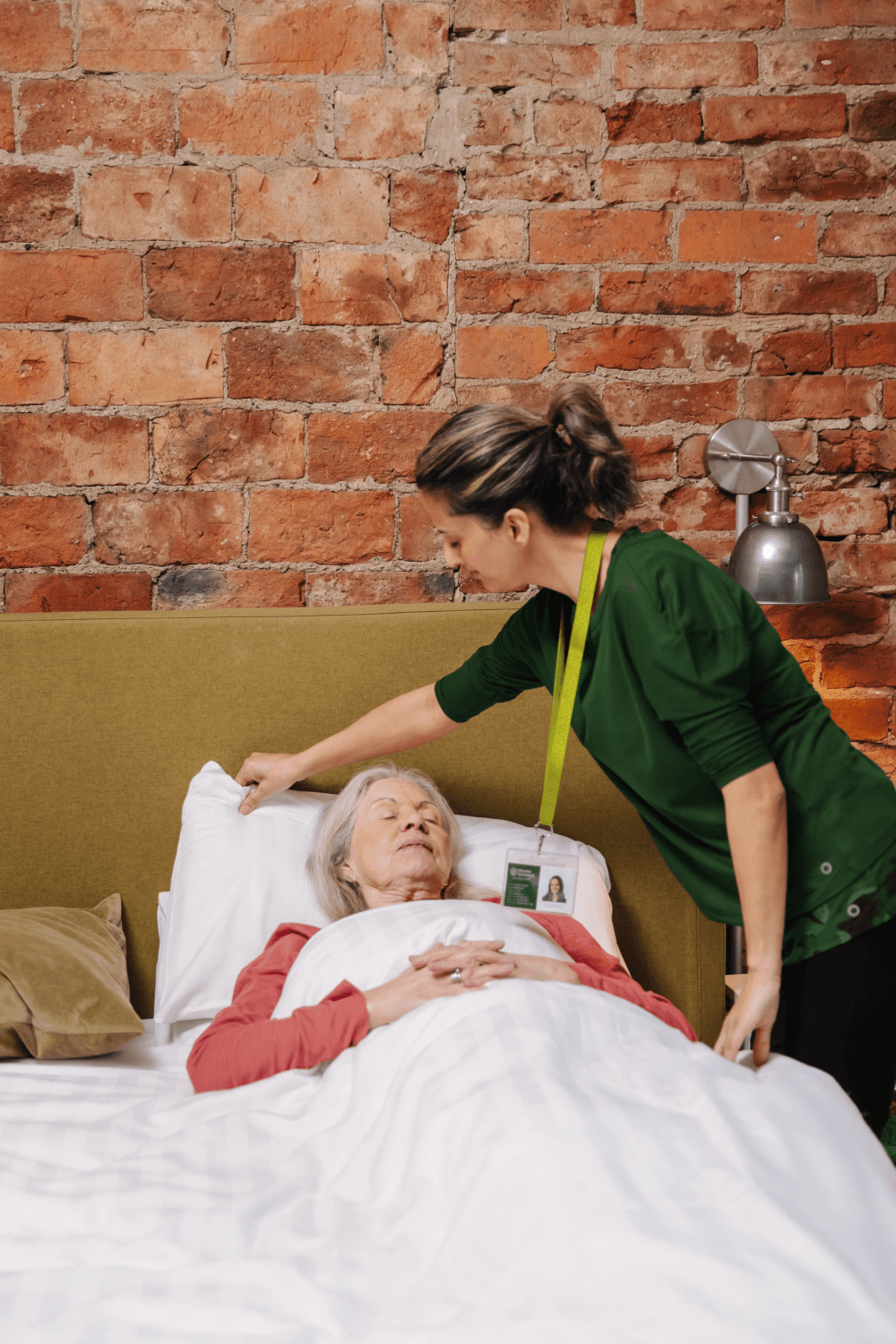
Why Home Instead?
Palliative care at home means those managing pain and symptoms can continue to:
- Enjoy their personal belongings
- Stay in a familiar environment
- Receive more frequent visits from family and friends
- Carry on taking part in hobbies
- Continue to get involved in their community
- Enjoy the company of their beloved pets
- Remain in control of their schedule
- Have more autonomy over how they spend their time
We are proudly rated 9.6 on Homecare.co.uk, with many of our locations also rated “outstanding” by the Care Quality Commission (CQC). With our experience of palliative care and our understanding of the emotional challenges this brings, we can provide holistic, compassionate, person-centred palliative care for you and your family.
Advice & Support
FAQs
- What is palliative care at home, and how does it differ from hospice care?
Palliative care at home focuses on improving the quality of life for individuals with serious or life-limiting illnesses. It provides relief from symptoms, pain, and emotional distress while allowing patients to remain in the comfort of their own home. Unlike hospice care, which is typically for those nearing the end of life, palliative care can be provided at any stage of an illness alongside curative treatments.
- What types of support are included in palliative care at home?
Palliative care at home includes a range of support, such as pain and symptom management, emotional and psychological support, assistance with daily activities, and coordination with healthcare professionals. It also extends to supporting family members and carers during this challenging time.
- Can palliative care at home be tailored to specific illnesses?
Yes, palliative care is highly personalised and can be tailored to the needs of individuals with conditions such as cancer, advanced heart disease, chronic respiratory conditions, or neurological disorders like Parkinson’s or motor neurone disease. The care plan is designed to address the unique symptoms and challenges of each condition.
- Who provides palliative care at home, and how is it coordinated?
Palliative care at home is delivered by a team of trained professionals, including Care Professionals, nurses, and sometimes specialist palliative care doctors. The care is coordinated with the patient’s GP, district nurses, and other healthcare providers to ensure a seamless and comprehensive approach.
- How can palliative care at home support family members and carers?
Palliative care at home not only focuses on the patient but also provides emotional and practical support for family members and carers. This includes respite care, guidance on managing the patient’s needs, and access to counselling or support groups to help them cope with the emotional challenges of caregiving.




